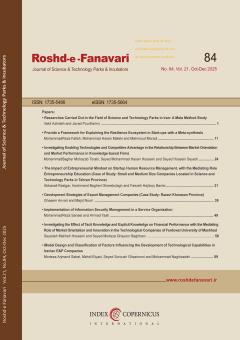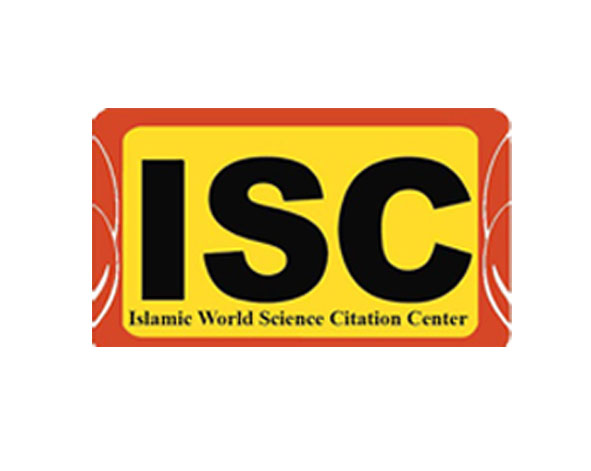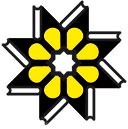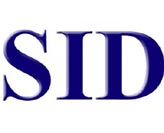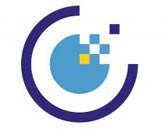This is an Open Access Journal. In other words, access to all published papers in this Journal is free from the date of publication and there is no charge for downloading papers. Researchers are allowed to read, download, distribute, print, search or get access to the full text of papers without a prior permission of the publisher or authors as long as the author of the original work is cited. Authors grant publisher a permission to publish the paper and identify itself as the original publisher.
About the journal
About the Journal
Introduction:
Technology Development (Roshd-e-Fanavari) is a journal of science and technology parks & incubators which is published by Rooyesh IT incubator (RITI), affiliated to Iranian Academic Center for Education Culture and Research (ACECR).
The aim of the Journal of Technology Development (JTD) is to foster the growth of research activities among the experts of science and technology parks and incubators, It also provides a medium for mutual communication between the government, academia and the industry on the one hand, and the world science and technology community on the other.
The principal language of the journal is Persian and English.
The Journal welcomes original research contributions (previously unpublished), lessons learned and the case studies that cover various aspects of Innovation, networking, incubators management, Incubators operational models, Technology commercialization, Entrepreneurship, Science & Technology Parks, Research & Development, Business models, Marketing, Benchmarking of incubators and STPs, SMEs and Venture Capitals. The journal also includes technical virtual/real discussion panels and round tables in field of science and technology parks and incubators.
Roshd-e-Fanavari is a member of COPE and endorses its guidelines, which are available at http://www.publicationethics.org
Journal Target Community:
The main target audiences of our journal are as follows:
- Science and Technology Parks (STPs) and Incubators;
- Universities;
- Research institutes & Academic centers;
- Executive policy makers in the field of technology.
Aims and Scopes:
The aims and scopes of this journal are as follows:
1. Reflecting the best practices and view points of experts in the field of technology.
2. Providing information at national/international levels for science and technology parks and incubators.
3. Providing an environment for exchanging ideas and consultation expertise in the fields of science and technology.
4. Disseminating Experiences gathered from the results of technology commercialization.
5. Promoting innovation and entrepreneurship amongst STP related organizations and SMEs.
Ethical authorship and publication.
Principles of Ethical Publishing in the quarterly Journal of roshdefanavari:
- That the corresponding author has the approval of all other listed authors for the submission and publication of all versions of the manuscript.
- That all people who have a right to be recognized as authors have been included on the list of authors and everyone listed as an author has made an independent material contribution to the manuscript.
- That the work submitted in the manuscript is original and has not been published elsewhere and is not presently under consideration of publication by any other journal. The oral or poster presentation of parts of the work and its publishing as a single page abstract does not count as prior publication for this purpose.
- That the material in the manuscript has been acquired according to modern ethical standards and does not contain material copied from anyone else without their written permission.
- That all material which derives from prior work, including from the same authors, is properly attributed to the prior publication by proper citation.
- That the manuscript will be maintained on the servers of the Journal and held to be a valid publication by the Journal only as long as all statements in these principles remain true.
- That if any of the statements above ceases to be true the authors have a duty to notify the journal as soon as possible so that the manuscript can be withdrawn.
plagiarism policy
Scientific Misconduct and Unethical Practices
The Roshdefanavari Journal accepts the definitions of plagiarism, fabrication and falsification, Scientific misconduct and unethical acts proposed in the:
- ACECR (Academic Center of Education and culture of Research),
- Ministry of science, Research and Technology,
- of Culture and Islamic Guidance,
The list below includes, but is not limited to, the following prohibited acts:
- Plagiarism, which includes the theft or misappropriation of intellectual property and the substantial unattributed textual copying of another's work. It does not include authorship or credit disputes. The theft or misappropriation of intellectual property includes the unauthorized use of ideas or unique methods obtained via a privileged communication, such as a grant or manuscript review. Substantial unattributed textual copying of another's work is defined as the unattributed verbatim or nearly verbatim copying of sentences and paragraphs which materially misleads the ordinary reader regarding the contributions of the author. It does not include the limited use of identical or nearly identical phrases which describe a commonly used methodology or previous research. The author must show the editor written permission to quote any information learned personally from another investigator or by reviewing applications for research grants. In the introduction, and especially in the discussion of a paper, the author should cite fairly the work of others that is relevant either to the origin or to the outcome of the research described, including references to original findings and seminal works.
- Fabrication, which includes making up results and recording or reporting them, in whole or in part.
- Falsification is manipulating research, materials, equipment or processes, or changing or omitting data or results such that the research is not accurately represented in the research record. It includes the suppressing or altering of data not in agreement with one's hypothesis.
- Redundant or duplicate publication, which includes the submission of a paper, or portion thereof, that overlaps with one already submitted or published. An author may not submit reports of the same or substantially overlapping research to more than one journal at the same time, unless the author can justify it in letters to both editors.
- Submission of animal or clinical research conducted without the approval of the institutional animal care and use committee or review board.
- Honorary authorship is not permitted in The Roshdefanavari Journal. Honorary authorship is the inclusion of authors who have not met The Roshdefanavari Journal’s definition of authors as described above. An author's signature on the copyright release form submitted with the manuscript and included in the byline of the manuscript indicates that the author agrees to share responsibility and accountability for the results. Alleged misconduct against an author on a manuscript will automatically entail investigation of all co-authors.
-
Open Access
-
Open Access Article
1 - Researches carried out in the field of science and technology parks in Iran: A Meta Method Study
Vakil Azhideh ، javad pourkarimi *Issue 84 , Vol. 21 , Autumn 2025 -
Open Access Article
2 - Provide a framework for explaining the resilience ecosystem in start-ups with a Meta-synthesis
mohammad reza fallah * ، mohammadhasan maleki ، Mohammad MoradiIssue 84 , Vol. 21 , Autumn 2025 -
Open Access Article
3 - Investigating enabling technologies and competitive advantage in the relationship between market orientation and market performance in knowledge-based firms
Mohammad Bagher Mohazab Torabi ، Seyed Mohammad Hassan Hosseini * ، Seyed Hossein SeyediIssue 84 , Vol. 21 , Autumn 2025 -
Open Access Article
4 - The Impact of Entrepreneurial Mindset on Startup Human Resource Management, with the Mediating Role of Entrepreneurship Education (Case of Study: Small and Medium Size Companies Located in Science and Technology Parks in Tehran Province)
Abbasali Rastgar * ، hooshmand bagheri garbollagh ، Faezeh Hajiloo BenisiIssue 84 , Vol. 21 , Autumn 2025 -
Open Access Article
5 - Development strategies of export management companies (Case study: Razavi Khorasan Province)
Ghasem Anvari * ، majid nooriIssue 84 , Vol. 21 , Autumn 2025 -
Open Access Article
6 - Implementation of information security management in a service organization
mohammad reza sanaei * ، ahmad taatiIssue 84 , Vol. 21 , Autumn 2025 -
Open Access Article
7 - Investigating the effect of tacit knowledge and explicit knowledge on financial performance with the mediating role of market orientation and innovation in the technological companies of Ferdowsi University of Mashhad
seyede malihe hosseini ، seyed morteza ghayour baghbani *Issue 84 , Vol. 21 , Autumn 2025 -
Open Access Article
8 - Model design and classification of factors affecting the development of technological capabilities in Iranian E&P companies
Morteza Arjmand Sabet * ، Mahdi Elyasi ، soroush ghazinoori ، mohammad naghizadehIssue 84 , Vol. 21 , Autumn 2025
-
Open Access Article
1 - Knowledge Management,Culture, and Higher Education
Mohammadali Neumati *Issue 7 , Vol. 2 , Summer 2006 -
Open Access Article
2 - The Study of the Affecting Factors of Knowledge Based Firms’ Growth and Success
Mahdieh Tari ، Mahmod Moradi * ، Mostafa Ebrahim pour AzbaryIssue 45 , Vol. 12 , Winter 2016 -
Open Access Article
3 - Marketing activities in Small and Medium technology enterprises
Issue 43 , Vol. 11 , Summer 2015 -
Open Access Article
4 - Technology Growth, Learning Change
hamed abbasi kasani * ، gholamreza shams mourkaniIssue 54 , Vol. 14 , Spring 2018 -
Open Access Article
5 - Developing a Conceptual Model of Strategic Agility in Research and Technology Organizations (RTOs)
Reza BandarianIssue 46 , Vol. 12 , Spring 2016 -
Open Access Article
6 - The Requirements to Shift from Close Innovation into Open Innovation
Manochehr Manteghi ، Parisa Hasan Abadi *Issue 46 , Vol. 12 , Spring 2016 -
Open Access Article
7 - Identify Indicators for Evaluating the Performance of Corporate Entrepreneurship
Saeed Safari ، Reza Abbasi ، Mozhgan Soltani Aliabad *Issue 46 , Vol. 12 , Spring 2016 -
Open Access Article
8 - The Effect of Innovation Ambidexterity on Export Knowledge and Performance of new Products in Export Markets
Mostafa Ebrahim pour Azbary * ، Milad Hoshmand Chayjani ، Mohsen AkbariIssue 42 , Vol. 11 , Spring 2015 -
Open Access Article
9 - The Effect of Government Financial Support on Innovation of Knowledge-Based Firms: Based on Iran Innovation Survey Data
parisa sattari * ، mohammadsadegh khayyatian yazdi ، farhad panahifarIssue 67 , Vol. 17 , Summer 2021 -
Open Access Article
10 - Learners Assessment Tools in E-Learning
hamed abbasi kasani ، gholamreza shams mourkani * ، farhad seraji ، morteza rezaeezadehIssue 61 , Vol. 16 , Winter 2020

